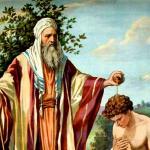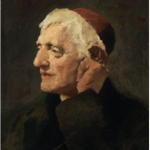As an American who married into a Canadian family, I had never celebrated Boxing Day before. December 26 just happens to be the wedding anniversary of my parents-in-law, so our family celebrates it differently. For us, it’s all about coming together at their house to commemorate their love. But for those who live in the UK, and in the British Commonwealth countries of Canada, Australia, and New Zealand, it means something else entirely.

The True Origins of Boxing Day?
Here’s a mini-article about Boxing Day, written by my brother, Paul Bryant-Smith, pastor of King Street United Church of Christ in Danbury, Connecticut. He posts this on social media most every year, for my wife’s benefit.
In the United Kingdom (and many parts of the former British Empire), December 26 is known as Boxing Day. This post-Christmas day of celebration dates back to the mid-18th Century. Contrary to what many believe, it has nothing to do with boxing up unwanted gifts and either passing them on to the household servants or returning them to the stores from which they came.
Instead, Boxing Day was the invention of John “Jack” Broughton (April 1, 1704 — December 26, 1789), who was the first person to codify rules for the modern sport of boxing. Those rules would change over time, eventually giving way to the Marquess of Queensbury Rules in the 1860s.
From 1743-1750, Broughton ran an amphitheater on Oxford Road in London, where he would provide instruction in boxing for gentlemen and would host both exhibition matches and prize fights. The most popular events were held on the day after Christmas, when all of the city had the day off, with the exception of the boxers and all of the other people who still had to work.
In 1745, Broughton’s Boxing Day events were refereed by Fighting Robert Cratchett, who famously loved working the holiday fights, wearing a bright red vest and sprigs of holly in the band of his top hat. His son “Big Tim” Cratchett, who was a notable boxer in his own right, standing 6’7” and weighing an impressive 280 lbs, was one of the contestants in that day’s event. Between his own pugilistic skills and some “assistance” from his father, Big Tim won the top prize, much to the disgust of the sporting public. Father and son were later immortalized (and satirized) in the writing of Charles Dickens.
And that’s why I’ll be spending this day after Christmas lounging around in boxer shorts and a robe.
Happy Boxing Day, everyone!
Teasing and Satire
At first, we thought that Paul’s social media post was fake news that he’d stumbled across and shared as fact. Then we realized it was satire. My wife joined the fun, ribbing us Yanks by sharing memes like “Happy Treason Day, Ungrateful Colonials” on the Fourth of July. Another post she likes to share on US Flag Day says, “We Burned Your White House” (Check out the history of that statement here.) So, she and my brother enjoy their friendly picking. The relationship between Canada and the United States is like that of many siblings—a mixture of love and teasing. Since Paul’s piece above is only satire, and not at all the origin of Boxing Day, where did the holiday really come from?
The Real True Origins of Boxing Day
Though the origins are debated, the most plausible explanation is that wealthy families in the UK and Commonwealth countries celebrated Christmas Day, requiring their household servants to work on that holiday. Then, on the following day when the family was relaxing, domestic workers were given the day off. Their employers gave them boxes of food, candy, cookies, and gifts in appreciation for their service.
How It’s Celebrated Today
Unfortunately, Boxing Day has become like another Black Friday. On December 26, you can catch sweet deals for spending the money your grandma gave you for Christmas. It’s also a day for re-boxing the presents you didn’t like. A time for standing in the long customer service line at the store to make your return and get something you prefer.
Bring Back Boxing Day
Maybe we should bring back the original idea of Boxing Day. It could be a great time to give gifts to those in the service industry. You might offer a special present to your postal carrier, cleaning lady, Uber driver, or the guy who shovels your driveway. You might offer a gift box to your pastor, home healthcare worker, mechanic, or massage therapist. You might even *gasp* use Boxing Day as a regifting opportunity. (Who doesn’t like to receive an ugly Christmas sweater or gift-wrapped jumper cables?) Or, besides giving gifts to these people, consider making a donation to your local service organization.
Remember Your Privilege
To put a spiritual emphasis on the day, maybe Boxing Day is a time for many of us to remember our privilege. When we who have the means to be generous take the opportunity to practice charity, we not only help others but also express the love of Christ. The trick is not doing it in a high-handed way. We shouldn’t be like aristocrats patronizingly offering gift boxes to “the help.” Instead, we should remember to relate to all people as bearers of God’s image, knowing that in the Realm of God there is no such thing as social status.
The Original Meaning of Charity
Along with reinstating the true meaning of Boxing Day, we should bring back the original meaning of “charity,” which meant “love.” Gift-giving looks entirely different when it’s an expression of the soul rather than an obligation. Instead of condescendingly offering gifts to “the poor,” Boxing Day would feel different if it were an expression of love. As the apostle, Paul wrote, “And now there remain faith, hope, and charity, these three: but the greatest of these is a charity (1 Cor 13.13 DRBC).” This means the most when “charity” means “love.”













